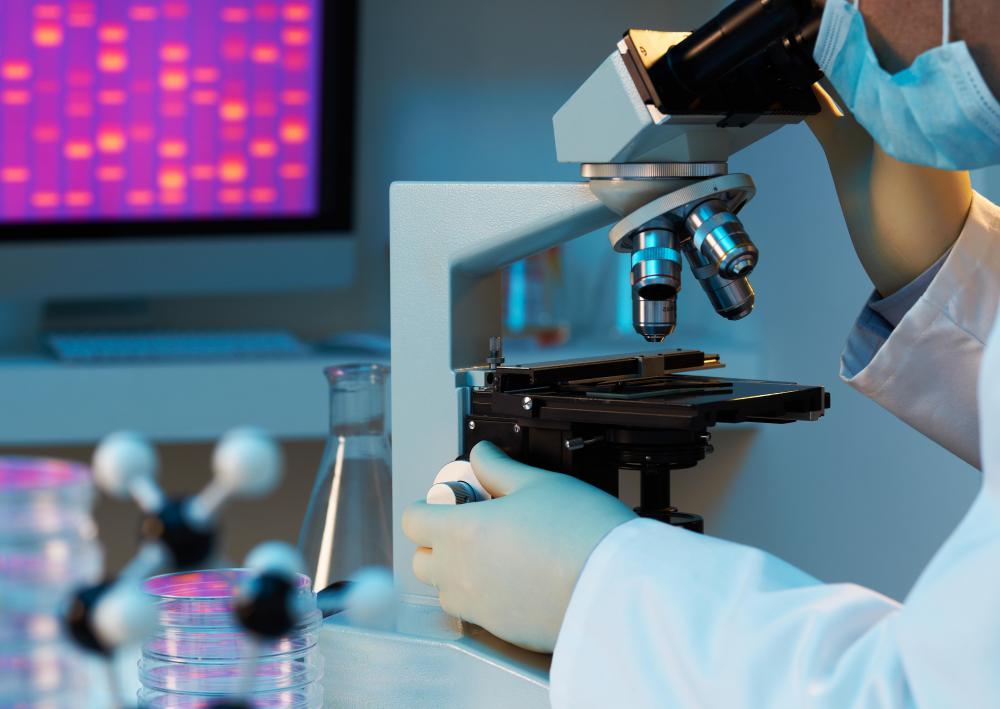At PracticalAdultInsights, we're committed to delivering accurate, trustworthy information. Our expert-authored content is rigorously fact-checked and sourced from credible authorities. Discover how we uphold the highest standards in providing you with reliable knowledge.
What does a Microbiology Technician do?
A microbiology technician assists scientists in carrying out detailed laboratory experiments regarding the makeup, behavior, and evolution of microscopic organisms. He or she is often responsible for preparing equipment and specimens, recording data, documenting results, and keeping lab facilities clean. Skilled, experienced technicians are often granted the responsibility to work independently on important research projects. Most technicians work in university labs and private research institutions, though some professionals are employed by biotechnology companies and industrial manufacturing firms that engage in microbiology studies.
Microbiology is a complex and varied branch of science, and technicians generally need to possess extensive knowledge of the specialty in order to perform their jobs well. Technicians carry out their duties according to the instructions provided by lead research scientists and lab directors, though their day-to-day work is often largely unsupervised. Common tasks include setting up lab equipment such as microscopes and centrifuges, preparing slides and samples, and labeling test tubes. During experiments, technicians may be responsible for recording results on paper or computers. They then compile data and organize information into meaningful charts, tables, and documents.

In order to ensure reliable results from experimentation, it is essential for a microbiology technician to understand the importance of rigorous ethics and accurate applications of the scientific method. Technicians must be thorough, exacting, and dedicated to their research. Depending on the specific job setting, a microbiology technician's efforts could lead to the development of a life-saving medication, the advancement of current theories of genetics, or even a deeper understanding of the origins of life. The job can be challenging and stressful at times, but most technicians enjoy their work immensely.

A person who wants to become a microbiology technician usually needs to obtain at least a bachelor's degree in the subject. While in college, some students are able to obtain internship positions at university labs to gain practical experience and improve their chances of finding work after graduation. New technicians typically begin their careers as assistants to established workers to learn about specific laboratory policies, procedures, and research directions. They are generally allowed to work under less strict supervision within a few months of successful work.

A dedicated microbiology technician may have many opportunities for advancement. With several years of experience, some professionals become laboratory supervisors, directing the work of other lab personnel. A technician who decides that he or she wants to conduct independent, original research can enroll in a Ph.D. program in microbiology.
AS FEATURED ON:
AS FEATURED ON:
















Discussion Comments
I have a few friends who studied biology and microbiology in college. Getting experience as a technician is pretty common if you go to graduate school in the subject, and from what I hear it can help in a lot of different fields. I know people pursuing everything from botany to medicine, and the ones who worked hardest as technicians seem to have the easiest time transitioning to higher levels of education and research later.
Post your comments